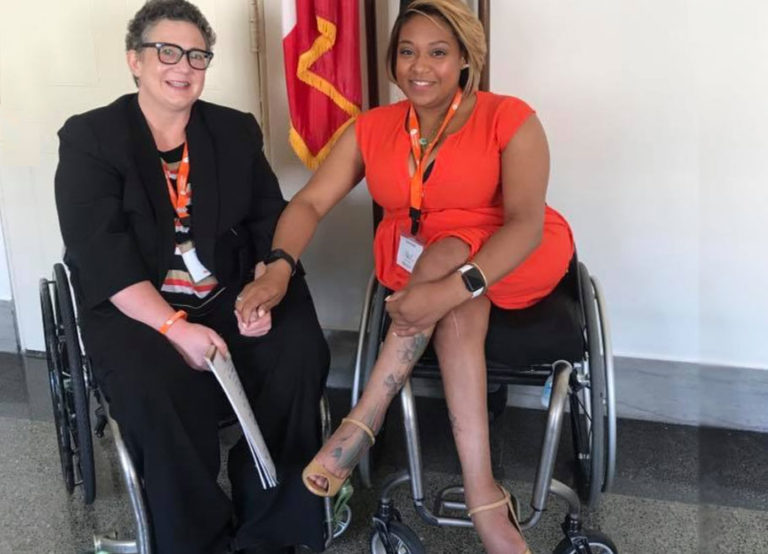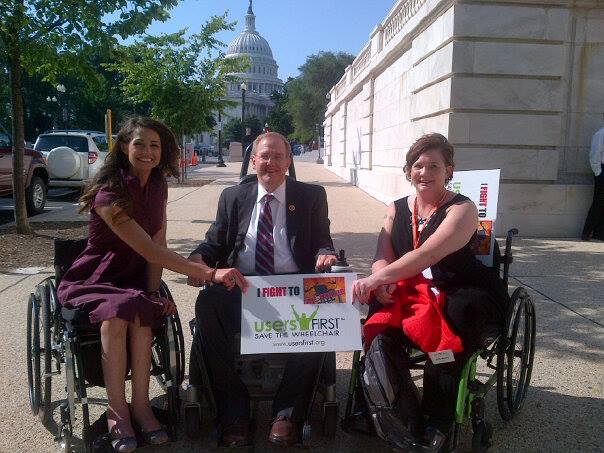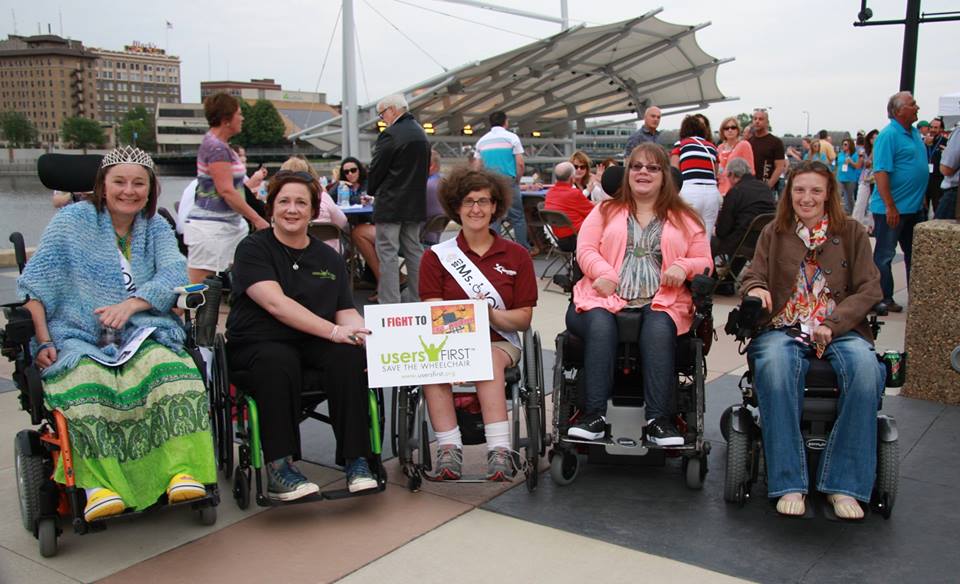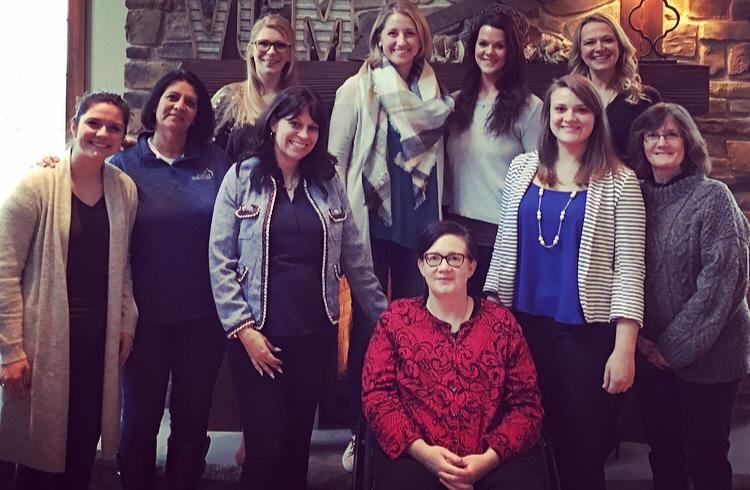 Jenn Wolff is a national disability advocate and the 2011 Ms. Wheelchair Iowa. In this article for the CURE NATION, she shares why it’s important to get involved with advocacy on the local level and how mindfulness can influence a person’s resiliency!
Jenn Wolff is a national disability advocate and the 2011 Ms. Wheelchair Iowa. In this article for the CURE NATION, she shares why it’s important to get involved with advocacy on the local level and how mindfulness can influence a person’s resiliency!
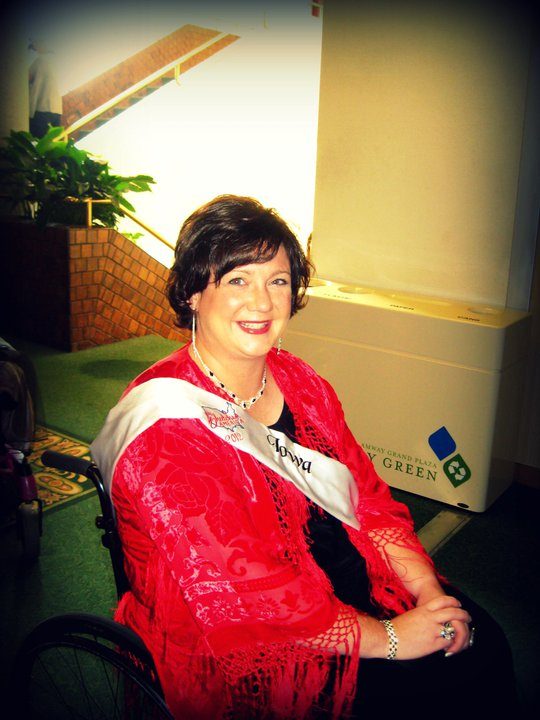 Jenn began using a wheelchair in 2003 when she had a spinal tumor due to an ependymoma, which left her paralyzed at the T-10 level.
Jenn began using a wheelchair in 2003 when she had a spinal tumor due to an ependymoma, which left her paralyzed at the T-10 level.
Jennifer is an Occupational Therapist, and a member of the Iowa Occupational Therapy Association. She primarily works with people who have upper extremity injuries, post stroke, some dementia and pre-driving skills.
Becoming Resilient: Jenn Wolff Survives Cancer
As an adult, a battle with cancer introduced Jenn Wolff to the disability community. “I became a part-time wheelchair user in 2003 due to a tumor in my spinal cord and the following surgery I had to have,” she shares. “In 2006, it reoccurred, so I had to have a second surgery and radiation, which resulted in a complete spinal cord injury and my wheelchair-use became full-time.”
After her first surgery and initial paralysis, Jenn was inspired to pursue an education to help others.
Pictured above: Jenn met with James R. “Jim” Langevin during one of her many advocacy visits to Capitol Hill. Langevin is the U.S. Representative for Rhode Island’s 2nd congressional district, serving since 2001. Langevin, a Democrat, is the first quadriplegic to serve in Congress. Langevin is also the first quadriplegic speaker pro tempore appointed during the 116th Congress.
Jenn recalls how her journey began, “Between surgeries, I got my master’s in Occupational Therapy [2005] and went to work as an OT. That kind of was my main focus – I worked from 20-30 hours a week and did a lot of outpatient hand and arm therapy. Then, I explored further into post-stroke and Parkinson’s disease patients, and eventually developed support groups for those – as they tend to be more common than SCI in my small little town here in Iowa.”
For many that dedicate their lives to working in the disability community, a life-altering personal experience is often the motivator. Jenn’s battle with cancer, the following spinal cord injury and associated therapy were the catalysts for her becoming an OT, but that was just the beginning of her involvement in the disability community.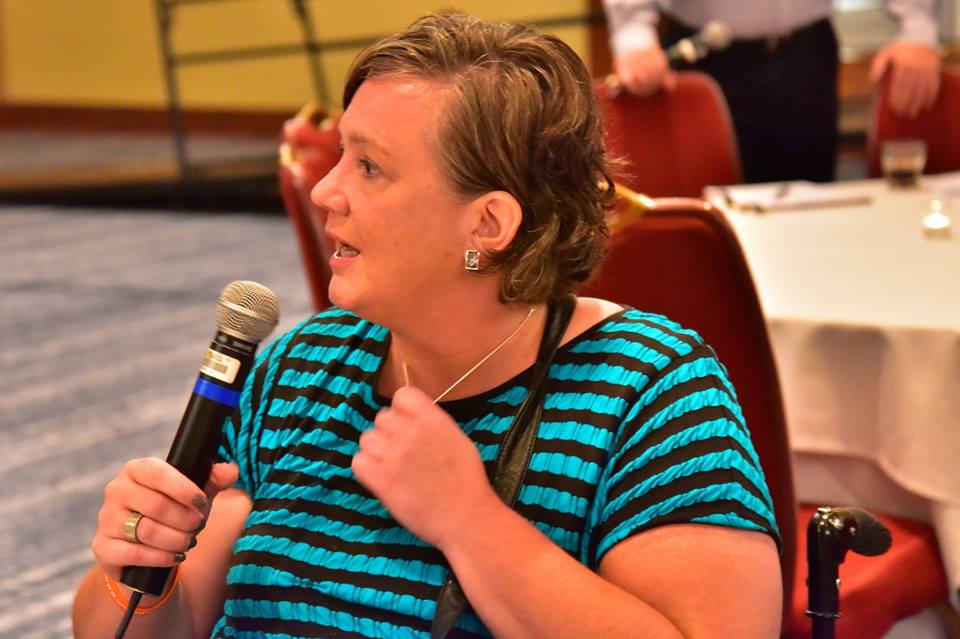
Resiliency and Living with Disability Inspires Jenn Wolff To Get Involved with Advocacy
A few years after my second surgery,” Jenn explains, “I was trying to get my first wheelchair replacement and was really struggling with how it was going. I didn’t understand how I wasn’t able to get a wheelchair that my therapists and vendors were saying was best for me. I mean, as an OT, I realized the equipment I needed was more expensive, but I also understood that in the long run it would be more cost effective and better for my body. I got really interested in why it was even possible for this to happen to people.”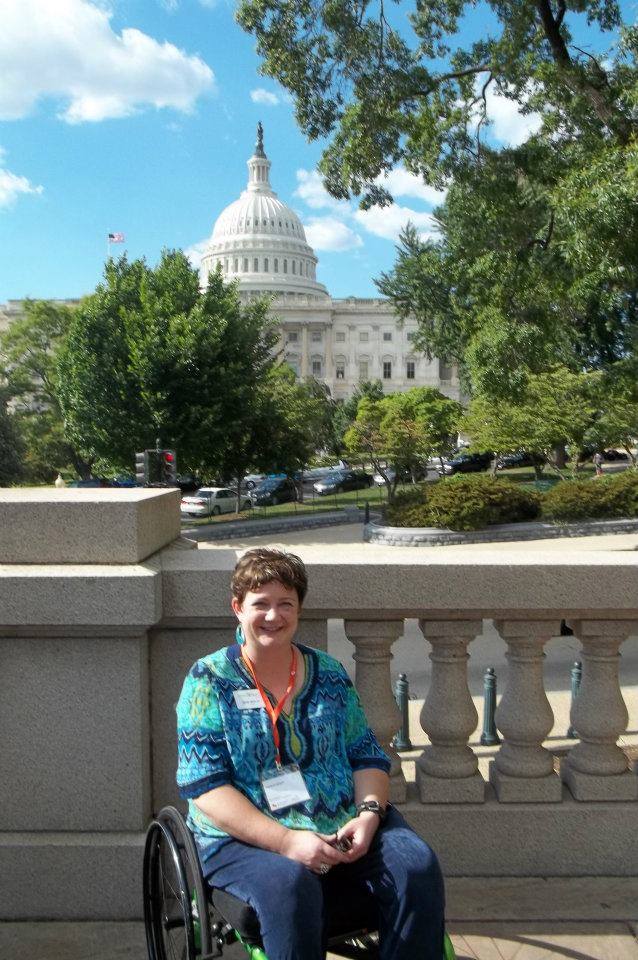 That challenging experience, and the knowledge that so many others were going through the same thing, set Jenn on her mission to make a difference.
That challenging experience, and the knowledge that so many others were going through the same thing, set Jenn on her mission to make a difference.
In 2010, she attended her first conference in Washington D.C., which was known at the time as the Continuing Education and Legislative Advocacy Conference (CILA). There, she met Ann Eubank, formerly of the User’s First advocacy group, and Jenn says it was a life-changer.
“Even though I had a profession working with people with disabilities and felt good about that, I didn’t really feel like I had a voice or was empowered to speak up as much until I experienced that conference.”
Later, when Ann stepped down from her leadership role at User’s First, she contacted Jenn to ask if she would be interested in continuing the effort, which had by then become a part of the United Spinal Association. Jenn took the position and helped build it into the successful advocacy program it still is today. Most recently, though, Jenn Wolff has been focusing on advocacy on the local level in her home state of Iowa.
She says, “Myself and six others are planning an advocacy day in Des Moines to discuss state Medicaid and other important issues.”
“It’s exciting, and a bit scary, to be at that building stage. We’re starting from page one – doing the basic education on how and where to get started. We’re hoping to create more of a disability coalition in the future.”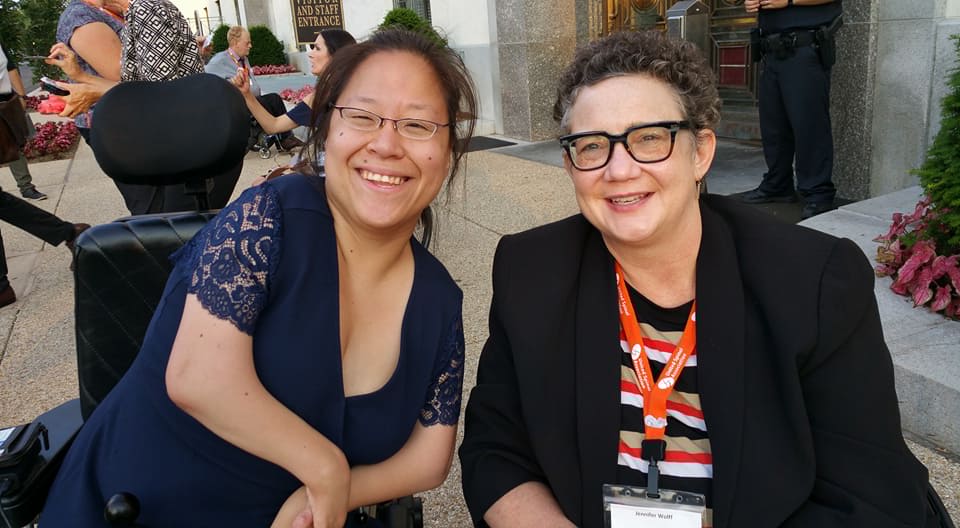
Jenn’s tips for getting started with advocacy
If you would like to raise your voice to support access to healthcare in your local community along with other important topics that are relevant to people with disabilities, Jenn suggests the following:
- Focus on building positive relationships with local policy makers
- Learn how to write position papers
- Get some business cards made and keep them handy so people can contact you
“I had been very D.C.-focused,” Jenn continues, “which is glamorous and exciting, but I realized we also need to be doing things at a local level. There are lots of individuals that have been doing that, but not much of an organized effort to work in local communities. What I am attempting to do is to educate and empower others to take action where they live.”
Jenn wants you to remember that persistence and resiliency is a key part of success in the advocacy world because change is not quick or easy.
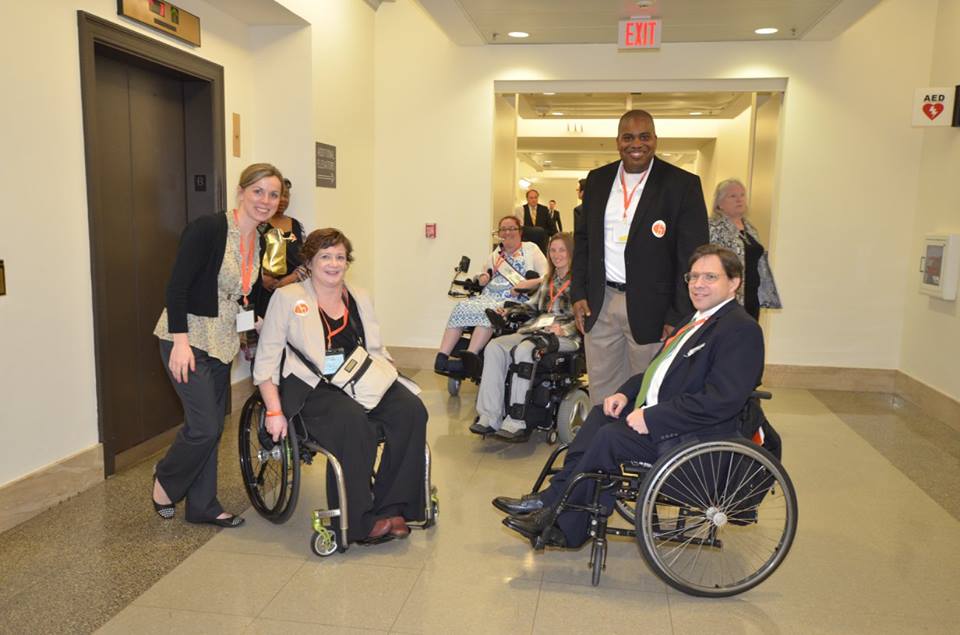
Jenn Hopes to Help Others Build Resiliency Through Mindfulness
“This is was I’m really excited about right now,” Jenn shares with anticipation. “I’m looking into a six-month program, a research based, mindfulness based program by neuroscientist, Dr. Amit Sood. He grew up in India practicing meditation, which has blossomed into mindfulness in our culture, to remove the religious aspect. Dr. Sood has coined the term ‘Mindfulness 2.0’, and teaches about using small reminders and affirmations throughout the day to reduce stress and increase feelings of gratitude.”
Resiliency (or resilience) is defined as the capacity to recover quickly from difficulties.
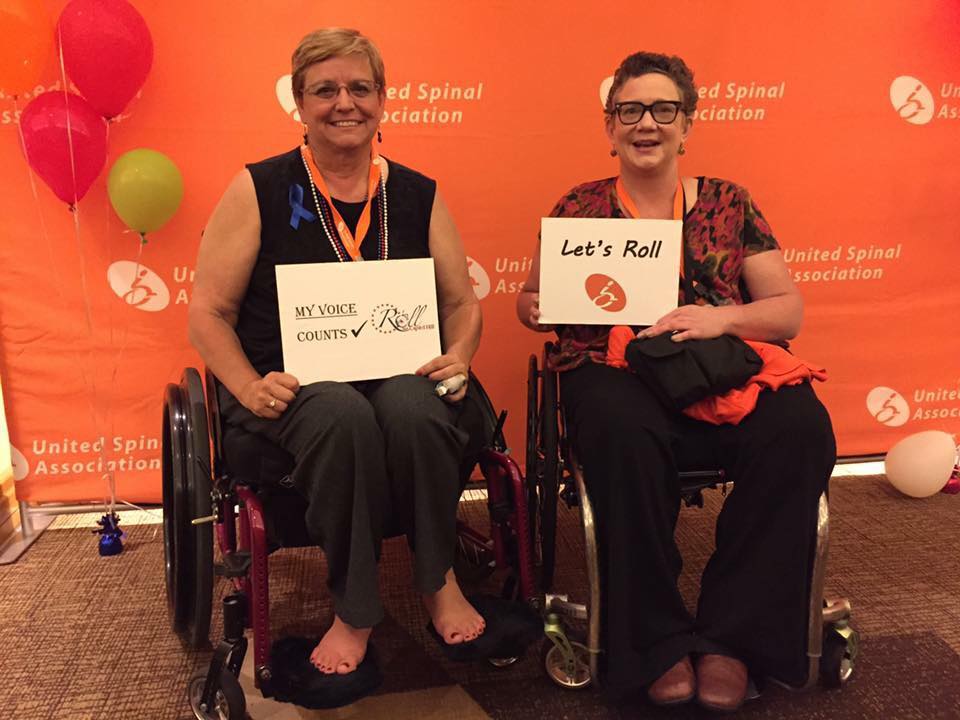 For Jenn, the program is also about reducing self-judgement!
For Jenn, the program is also about reducing self-judgement!
It’s easy to judge our own abilities (or perceived lack there of), our state of health and so much more. Jenn’s hope is to help people – her patients and the disability community in general – to build up a tolerance to stress using the tools that mindfulness teaches.
“Some of us really struggle with depression and we all deal with burnout and stress – and I want to help our community strengthen personal resiliency. Our society focuses on independence, but in our community, we’re more successful when we’re interdependent.”
Photo: Recently, Jenn joined a group of home medical equipment activists to teach the finer points of communicating effectively with people who depend on medical supplies and durable medical equipment.
Jenn Wolff is Thankful For Companies Like Cure Medical
Cure Medical appreciates everything advocates like Jenn Wolff do for the disability community, and it’s one of the many reasons we have the Cure Commitment – a promise that we donate 10% of all net income back to spinal cord injury and central nervous system research in pursuit of a cure for paralysis.
When asked about the Cure Commitment, Jenn replied, “It’s fabulous that a company would invest back in the community! I wish more companies would do things like that. I don’t do a lot of promotion for companies for my own reasons, but Cure Medical is one of the few companies I’m willing to spread the word about because of their work in the community.”
“Cure shows that they have a strong commitment to our community through everything they do.” – Jenn Wolff
Cure Medical Financially Supports Ms. Wheelchair America
Recently, Cure Medical and Ms. Wheelchair America announced a new partnership to help financially support Ms. Wheelchair America programs at the national and state level. The goal of the partnership is to uplift savvy women like Jenn Wolff as they rise up through the Ms. Wheelchair professional development programs.
“This partnership will help Ms. Wheelchair America continue to empower women of achievement though leadership, advocacy and education.” says Shelly Loose, President of Ms. Wheelchair America when asked about Cure Medical’s support of the organization.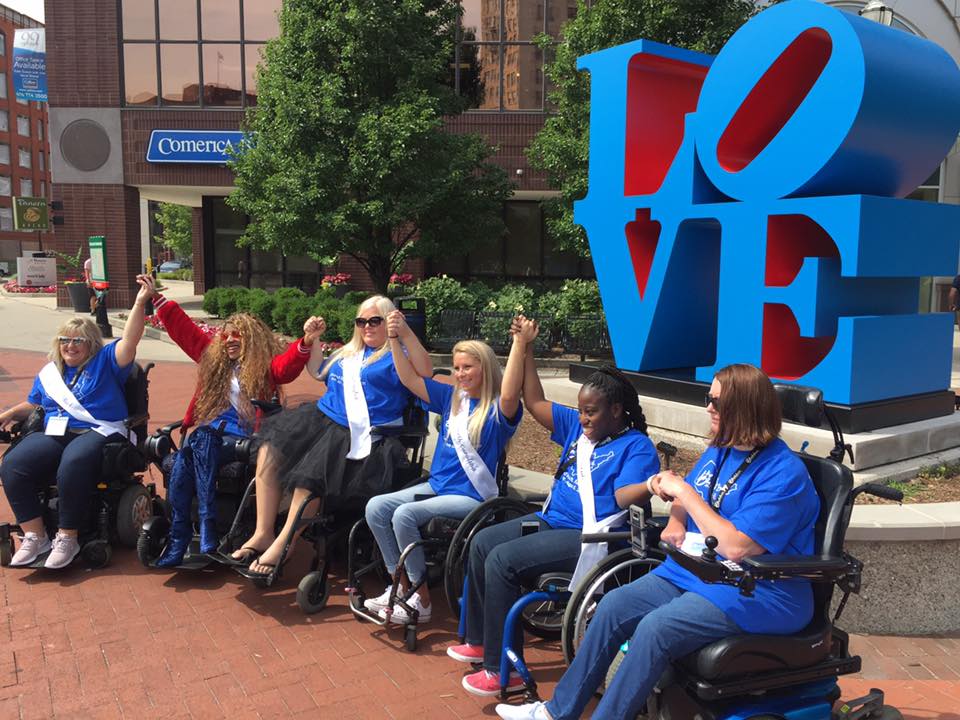 As an exclusive sponsor, Cure Medical will financially support the mission of the Ms. Wheelchair America organization so state titleholders can continue to advocate for the more than 56 million Americans living with disabilities.
As an exclusive sponsor, Cure Medical will financially support the mission of the Ms. Wheelchair America organization so state titleholders can continue to advocate for the more than 56 million Americans living with disabilities.
Cure Medical CEO John Anderson says, “We are thrilled to join forces with Ms. Wheelchair America to support the professional development of women who have disabilities. Additionally, we are thankful for their ongoing efforts to educate community groups, care providers and policymakers about vital healthcare topics including access to quality medical supplies.”
Learn more here about the Ms. Wheelchair America programs in your local community!
Enjoy Our Free Resources & Articles
 CURE NATION is designed with you in mind, to offer assistance and education when you need it through a personal support program.
CURE NATION is designed with you in mind, to offer assistance and education when you need it through a personal support program.
All of the information you find below and on our related social media pages is meant to guide you to places, topics and resources that enhance your life, while also connecting you with a growing group of friends.
- Sign up for our free, CURE NATION e-newsletter to have our latest stories delivered directly to you, once a month.
- Get our FREE LIFESTYLE + ACCESSIBLE TRAVEL BOOKS here.
- Meet us in person at a CURE NATION event.
- Have an idea you’d like to share? Let us know.
- Be sure to take minute to meet our Cure Advocates too.

